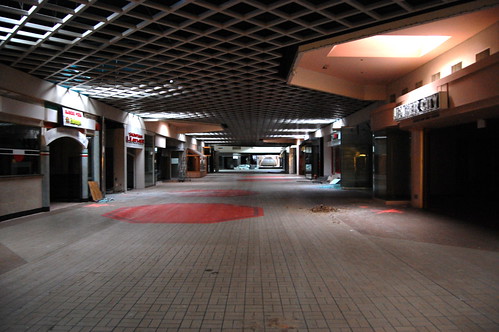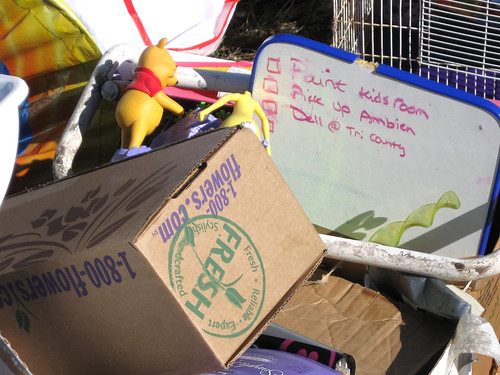---------Please note that this blog discusses graphic violence, and may be disturbing----------
I met a man last week who lost his mother, his two young brothers, his two-year old sister, his aunts, his grandmother, and the rest of his family in the 1974 war in Cyprus. To say 'lost', actually, is a polite euphemism. More than thirty members of his family were murdered by extremists. Some were shot – executed. His two brothers were decapitated. They were just young boys, still children.
During the July1974 Greek military coup in Cyprus, this man's village was rounded up by Greek Cypriot soldiers and herded into makeshift prisons. The men of the village asked that the women, children, and elderly be released and allowed to return to their villages. The people holding them consented, and the groups were separated. He and his father, along with other men from his village in Cyprus, were moved to a prisoner camp in Lemesos, in Cyprus' south, where they were held for a little over two months. In the prison camp, he began hearing stories that something terrible had taken place in one of the Turkish Cypriot villages near his home, where an entire village of women, children, and elderly were murdered and buried in pits. When he asked for details, his fellow-prisoners would fall silent.
Not having heard anything from his family for the entire period of his detention, this man – then a boy of sixteen – returned home to find his village empty. 'Only the dogs were left in the village', he said. The village the men in the prison camp had spoken of was his. The entire village was rounded up and murdered. Many women and young girls were first raped. He does not know if his brothers had their heads cut off before or after they were killed. 'To know this is important', he says. I understand why. I have two brothers, and I cannot banish my horror.
Thirty five years later, the man is sitting next to a much younger Greek Cypriot man whose father was abducted by Turkish Cypriots, and along with six other men, brutally murdered and their bodies thrown into a well. On the other side of them sits an even younger Greek Cypriot woman whose uncle, an eighteen year old conscript due to finish his military service the day the war began in 1974, was also killed and his body 'disappeared'. Next to her is a Turkish Cypriot man whose father, a bank manager, was taken from his workplace, killed, and his body hurriedly buried. Beside them is a Greece Cypriot man who lost eighteen members of his family, killed by Turkish Cypriot paramilitaries. Between them, these five people carry more pain than is conceivable.
They have formed an organisation called the 'Bicommunal Initiative of Relatives of Missing and Tortured People and Victims of Massacres'. In very stark contrast to a great deal of Cypriot society on both sides of the political divide, they are asking to uncover the details of atrocities committed in Cyprus between the decade of 1963-1974. Thanks to the resumption of work of a long-stalemated UN-led committee mandated to find the remains of the some 2, 000 people killed during that period, some of the relatives of these victims have recently had the remains of their loved ones returned to them. The UN committee's mandate, however, is very narrow: find the bodies, establish their identity, return the remains. There is no answer for what happened to these people, or why.
Many people in Cyprus know that in the war both side committed atrocities both against the other community but also within their own community. A prominent Greek Cypriot politician, for example, was publicly accused recently of being a torturer for an extreme right-wing organisation called EOKA-B by one of his (Greek Cypriot) victims. The claim was documented and published by a Greek Cypriot journalist. The politician took the journalist to court for libel. The politician lost the case; the court found that the journalist had sufficient evidence for his claim – in other words, the court found sufficient evidence to support the claim that the politician had been engaged in torturing people in the early 1970s. Despite the first public finding (albeit accidentally) of a criminal case from 1974, no criminal prosecution was forthcoming, despite the fact that it is required by Republic of Cyprus law. The man remains in politics.
Very few people in this country are willing to talk openly about the past. No one, except for this victims' group and a small collection of other people, is interested in a systematic public examination and accounting of what has happened to us in the past. At the same time, Cyprus remains an unresolved conflict. Forty years of negotiations have failed to find a resolution to the political dispute between Greek and Turkish Cypriots, and the continued Turkish military presence (numbering some thirty-odd thousand soldiers) on the island. In 2004, a complete reunification package, negotiated behind closed doors, was rejected by the Greek Cypriot community, which felt that the proposed solution was not an adequate remedy to the consequences of the 1974 war. In honesty, I think neither community feels safe with the other.
The primary reason the families of these murdered people are asking a public examining of the past is not only because they seek to uncover the stories that have remained hidden in society for so long, and for the exposure of those people who murdered their mothers, fathers, brothers, sisters, husbands, wives, daughters, sons, parents, and friends, but so that, in publicly uncovering those stories and those people, society can never say 'we didn't know' or 'it didn't happen'. Their hope is that in entering these terrible experiences into the public truth, society can guard against it ever happening again.
Today I am in Beirut, and again I am listening to people talk about the forced disappearance of people they love. Before me sits a Lebanese man who in 1987 was given over to the Syrian army and taken across the Lebanese border into Syria, where he simply 'disappeared' for thirteen years. The man next to him was disappeared in a similar way for twelve years. For the first six years, his family had no idea of his whereabouts. In his seventh and eighth years, his family found him. They were allowed to visit him once a year, for those two years. They were not sure, when they went to see him, whether they would be turned away at the gate, whether he had been moved, or whether he was still alive. The situation improved over the next four years to the point where in the last year of his captivity they could visit him four times. The Lebanese government, in so far as one existed, insisted for many years that there were no Lebanese prisoners in Syrian jails in either Syria or Lebanon. The Syrian government simply refused to reply when confronted with the question. So it was quite a mysterious thing when he, and the other men who shared his prison, were released unexpectedly one day some six years ago and simply re-appeared at the Lebanese border. Those men left behind compatriots who, if they have not since been killed, will have remained in Syrian prisons for more than twenty years. A president closed his eyes and pointed to a number from a list of prisons laid before him, and so these men were freed.
There are between 2000 and 17000 people in Lebanon who are the immediate victims of enforced disappearance. I mean to say that this number of people were actually disappeared. The number is so broad because no-one has conducted a proper, thorough and comprehensive study into the numbers of people missing; it does not seem to be in many people's interest here in Beirut, because, like in Cyprus and in many other places, yesterday's perpetrators are today's politicians and power-elite. Unlike in Cyprus, in this country no-one has even bothered to systematically excavate or protect suspected mass burial sites. Those sites which are dug up are bulldozed, and the bones which are by some miracle removed, have not yet made it back to a single family. In Beirut, you can walk over mass graves and you wouldn't even know.
Some years ago a law was passed in Lebanon which would allow the families of disappeared people to declare their loved ones dead so that they could clear up issues of inheritance and etcetera. The families to whom this law would apply reacted with outrage and deep hurt. 'In other countries, people are presumed alive until proven dead', said a man whose son and brother were both taken, on separate occasions. 'In this country, we declare them dead without even knowing where they went'. Another woman, whose teenage son was taken when he went out to buy bread, repeats over and over again how her son, missing now for fifteen years, will come home alive. 'He is handsome', she says, 'my boy is so handsome, you will see how he has grown into a beautiful man'. Another woman lost her three teenage children – sixteen, seventeen, and eighteen, all at once. They too, were taken randomly during the Lebanese civil war. In this country you trip over stories that are individually unbearable. A woman talks of her father, a professor, who was disappeared when she was eleven years old. 'I did not even get to share my adolescence with him'. She learned him, she said, through the eyes of his friends and his students, people who loved him. She has heard stories, rumours about the terrible things that might have befallen him, but she does not know for sure.
I watched a video at an NGO here in Beirut tonight alongside some of the families of disappeared people, and next to one of the men who were detained in Syria. As a point of fact, we are sitting in Hezbollah territory and the buildings around me are bullet-riddled and scarred by Israeli fire from 2006. The film was a documentary which followed the story of a man in Morocco, whose father was also disappeared. When his father was disappeared, the man in the documentary was eleven days old. Eventually the mass grave where his father was buried was uncovered, and the Moroccan authorities re-buried his father's bones, near the prison where he died. They tell this to the man, who quietly, with deep deep pain replies 'it's just that I would have liked to have been there for his burial. I have never seen my father, you see. It was important to me.' Two government men, presumably, look at him blankly from across the table.
At this point I can't bear to hear any more because I am thinking of my own father. I am almost thirty, and I have been blessed to have been brought up by two loving parents who are still young and vibrant people. I have so many memories with my family; trivial, important, sad, ridiculous, every-day beautiful moments that have stretched over twenty nine years that, for me, have been short. I couldn't collect them all together if I tried to. Just the thought of my father being tortured and killed, and thrown into a pit with thirty other men to rot under the sun because of his political affiliation, his ideological belief, his religion, or simply because he was in the wrong place at the wrong time, is overwhelming and I cannot endure the imagining with any kind of calm. I cannot begin to imagine how this man feels who lost his father before he even knew him, who wanted only to be present at his father's burial.
I say all of this because Kate’s blog, below, prompted me to think about how peace is built. In societies with vastly different experiences and traumas, is there a single principle that can be drawn out?
In Australia, we live in an established and stable democracy at the national level. And yet, young people are asking how to build peace in their communities. And not long ago our then-prime minister John Howard ordered the Australian military into aboriginal communities because he, and his policy makers, believed that this was the best way to combat communal violence. Stability, peace, democracy, and safety is not something which all Australians enjoy. And before we distance ourselves too far from countries like Lebanon and Cyprus, whose stories are bloodied and violent, please remember that Australian Aboriginals in remote communities have life expectancies which are on par with the developed world.
And we have our own stories which are not told, our own truths which are silenced.
When my family first emigrated to Australia, it was to the Northern Territory that they went. My great-uncles moved to Darwin in the late 1940s. One of these uncles told a story to my father once that I now tell you. In those days, in the late forties and early fifties, my uncles were butchers. One day, I think it was a Sunday, they were working in the shop when someone they knew pulled up to the back door and invited my uncles to go hunting with them. My uncle asked what they were hunting. 'Boongs' was the answer. My uncle thought the man was joking. If this story is true, there were people who went hunting with the intention of shooting other people – Aboriginal people – as late as the 1950s. I have no way of verifying this story, it was a story told to my father many years ago, and if I asked my elderly uncle now, I don't know what he would say. I would be interested to know if anyone else has heard anything similar. If other people have heard similar stories, then why are we not talking about them? If I am alone, then I hope I will be forgiven. The obligation to tell this story was greater to me than the obligation not to.
I am thinking about the question Kate has tried to answer. I will add only two simple remarks. I think that empathy and a culture of debate and openness are key to building and sustaining peace in any society. Empathy because without being able to feel another person's pain, you can do terrible things, or accept the doing of terrible things to people. I live in a society where people do not relate to other people's suffering because their own traumas have not been addressed. You find in many post-war societies that have not confronted their past that people tend to be quite numb. When you are focused on your own victimhood, and your own wounds are festering, there is no space inside you to acknowledge another person, or community’s, pain. Abuse is easier to justify when you are angry, vengeful, or emotionally removed from another person's suffering. And a culture of debate and openness because without it, misunderstandings grow into prejudices, which have the potential to grow into racism, sexism, and bigotry, and to be manipulated by demagogues for their own gain. We need strong people in society who can think and question assumed truths and feel and grow. As for how to build this kind of culture in societies or communities which are deeply wounded, I have no answer.









